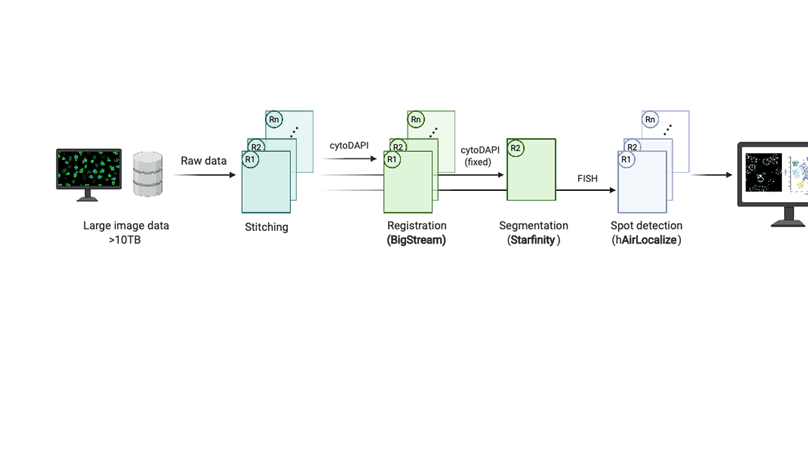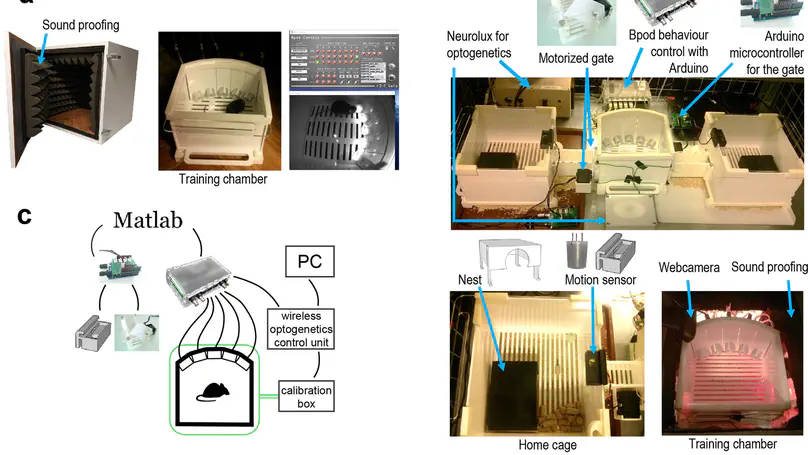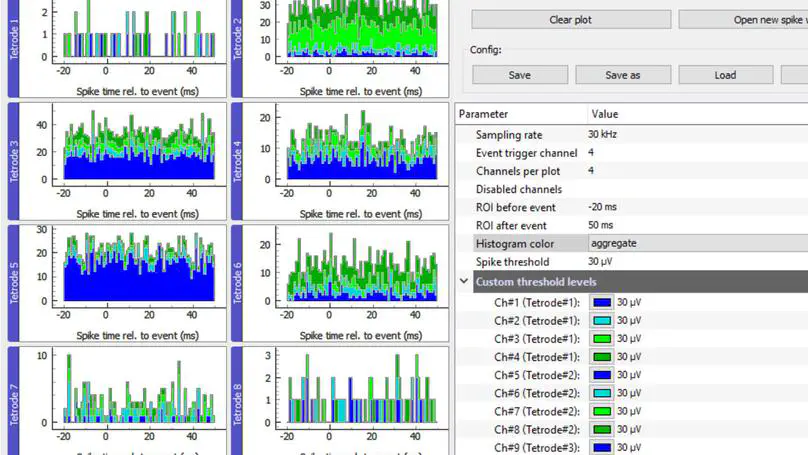Posts

COINSTAC provides a platform to analyze data stored locally across multiple organizations without the need for pooling the data at any point during the analysis. It is intended to be an ultimate one-stop shop by which researchers can build any statistical or machine learning model collaboratively in a decentralized fashion.

When performing canine operant conditioning studies, the delivery of the reward can be a limiting factor of the study. While there are a few commercially available options for automatically delivering rewards, they generally require manual input, such as using a remote control, in accordance with the experiment script.

This workflow is used to analyze large-scale, multi-round, high-resolution image data acquired using EASI-FISH (Expansion-Assisted Iterative Fluorescence In Situ Hybridization). It takes advantage of the n5 filesystem to allow for rapid and parallel data reading and writing.

Experiments aiming to understand sensory-motor systems, cognition and behavior necessitate training animals to perform complex tasks. Traditional training protocols require lab personnel to move the animals between home cages and training chambers, to start and end training sessions, and in some cases, to hand-control each training trial.

Extracellular microelectrodes frequently record neural activity from more than one neuron in the vicinity of the electrode. The process of labeling each recorded spike waveform with the identity of its source neuron is called spike sorting and is often approached from an abstracted statistical perspective.

lab.js makes online experimentation easy. It’s a free, open, online study builder and data collection framework for the behavioral, neuro- and cognitive sciences. Studies built with lab.js run in the laboratory as well as online, across a wide variety of data collection platforms, and provide excellent performance for all modes of stimulus presentation.

MNE-Python is an open-source Python module for neuroscience data analysis. It implements many neuroscience-specific algorithms and statistical tools; has rich visualization capabilities that are both interactive and fully scriptable (for reproducibility); and integrates easily with general-purpose libraries like SciPy, Scikit-learn, and TensorFlow.
Vision is one of the primary senses, and tracking eye gaze can offer insight into the cues that affect decision-making behavior. Thus, to study decision-making and other cognitive processes, it is fundamentally necessary to track eye position accurately.
